|
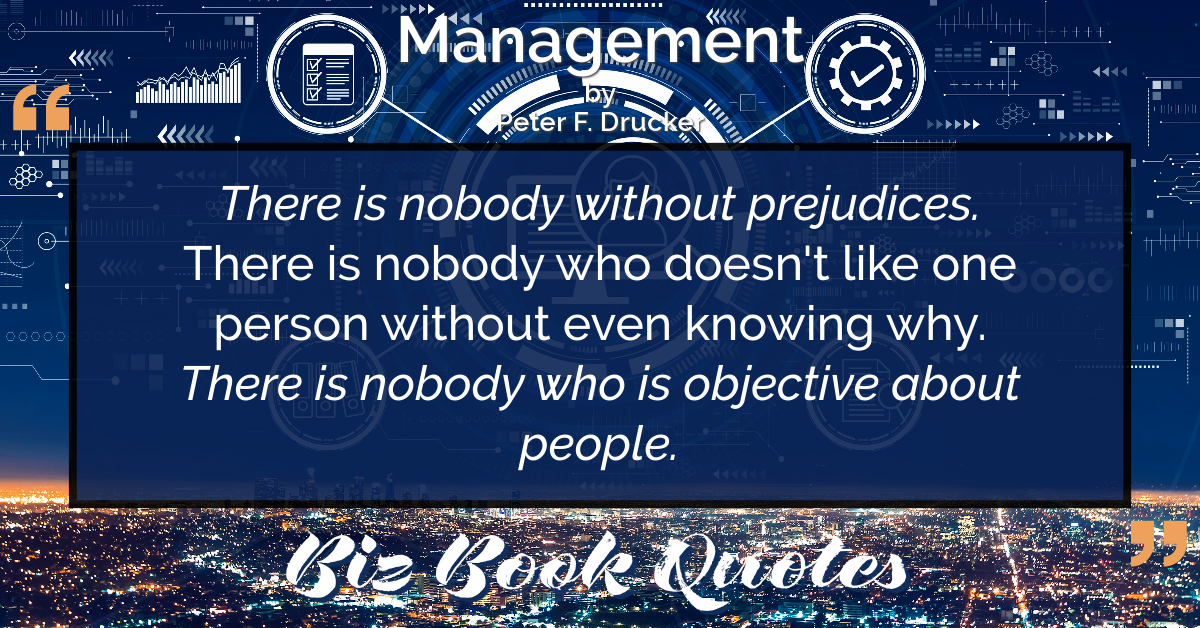
|
Management:
There is nobody without prejudices. There is nobody who doesn’t like one person without even knowing why. There is nobody who is objective about people.
|
315 |
|

|
Management:
Making people decisions is the ultimate means of organizational control. No organization can perform better than its people.
|
315 |
|
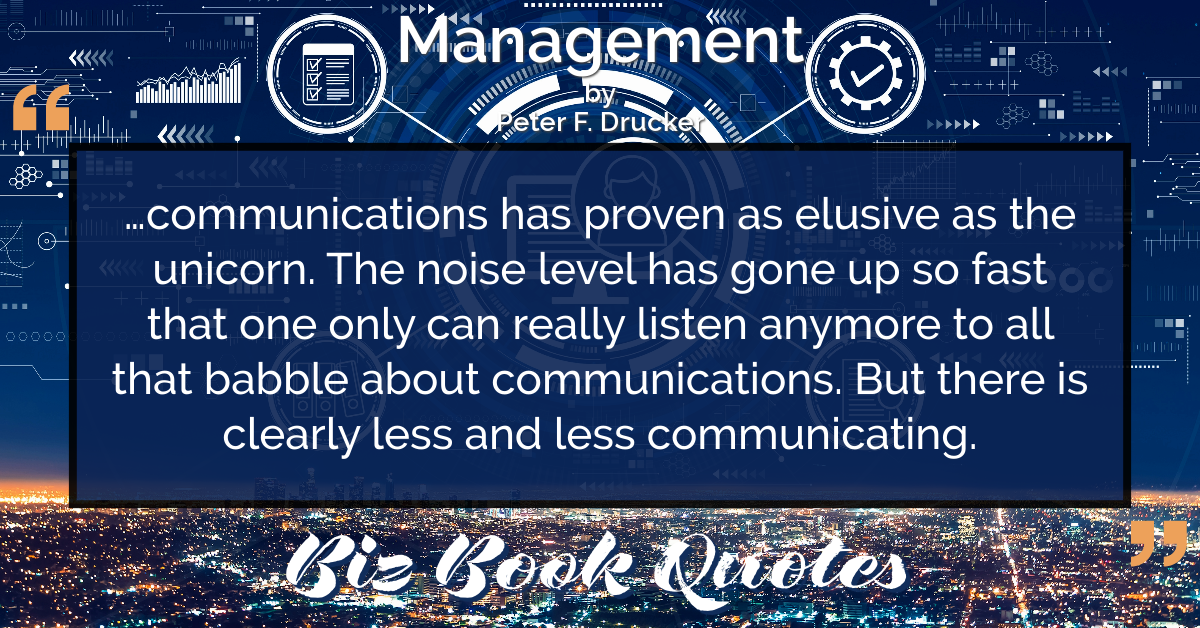
|
Management:
…communications has proven as elusive as the unicorn. The noise level has gone up so fast that on one can really listen anymore to all that babble about communications. But there is clearly less and less communicating.
|
317 |
|
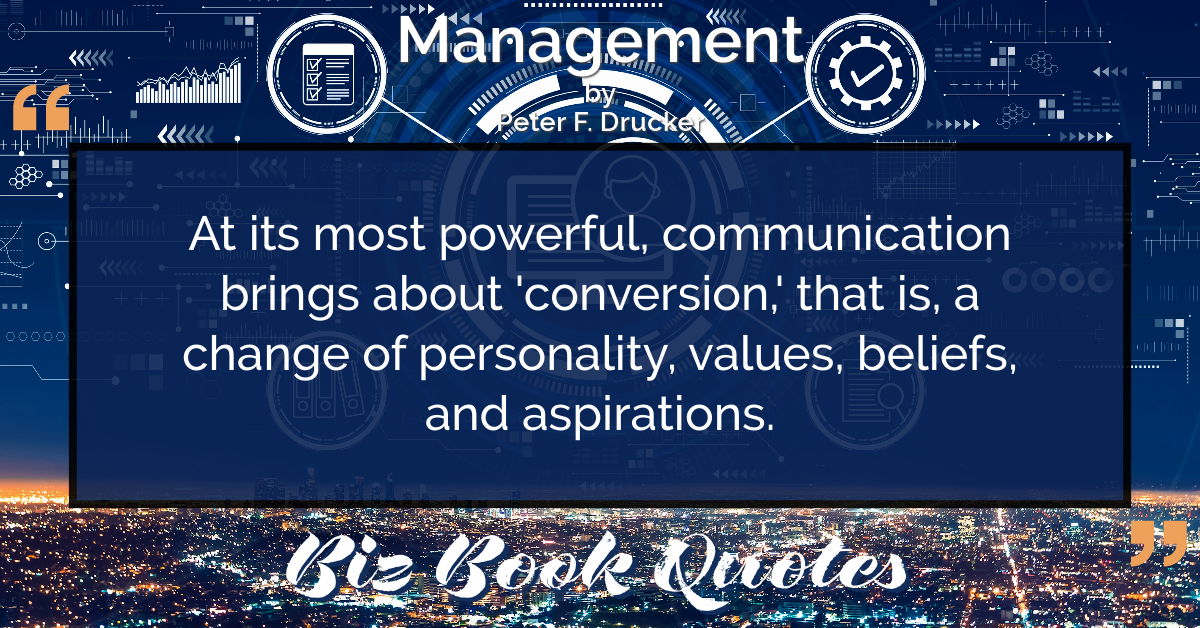
|
Management:
At its most powerful, communication brings about ‘conversion,’ that is, a change of personality, values, beliefs, and aspirations.
|
318 |
|
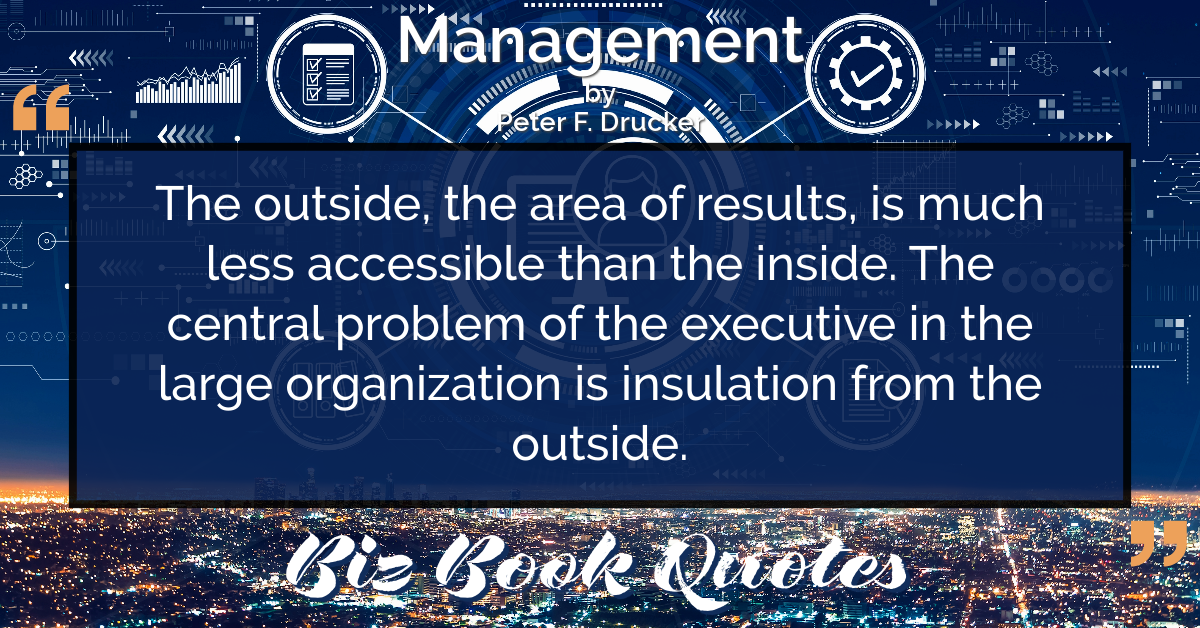
|
Management:
The outside, the area of results, is much less accessible than the inside. The central problem of the executive in the large organization is insulation from the outside.
|
323 |
|

|
Management:
The measurable results are things that happened, they are in the past. There are no facts about the future.
|
324 |
|
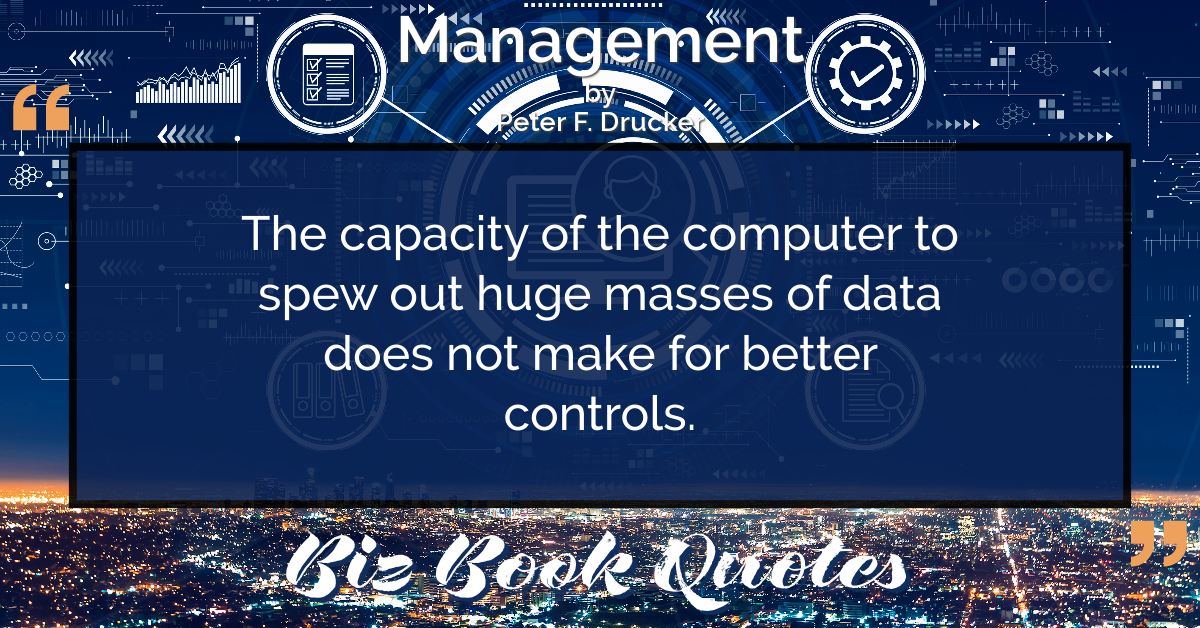
|
Management:
The capacity of the computer to spew out huge masses of data does not make for better controls.
|
325 |
|
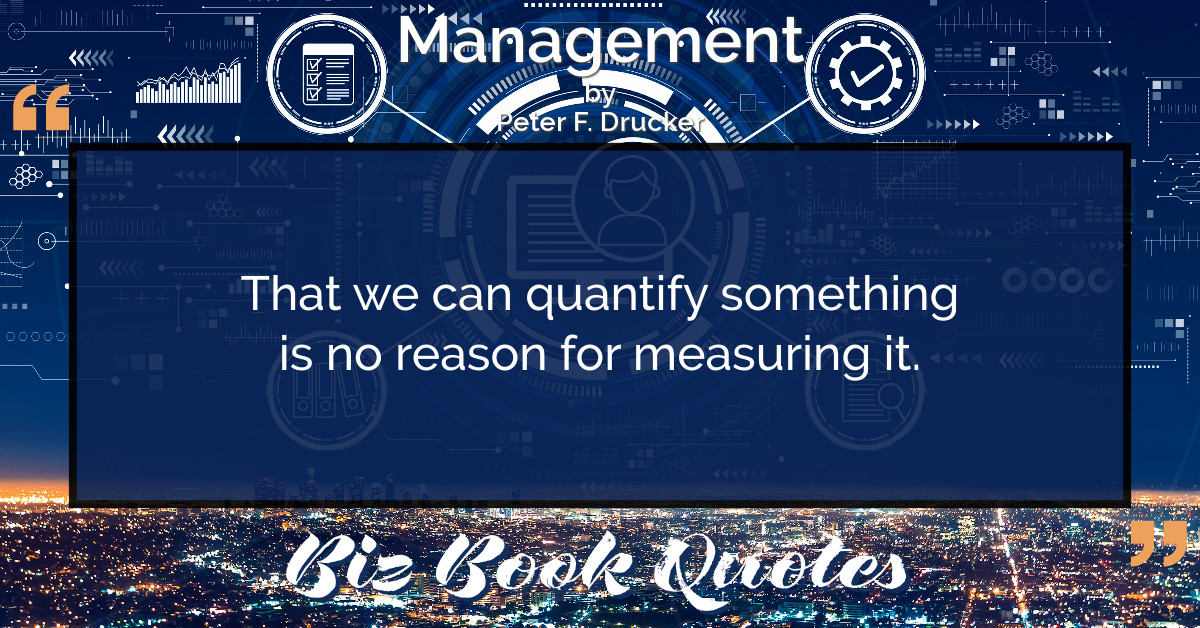
|
Management:
That we can quantify something is no reason for measuring it.
|
325 |
|
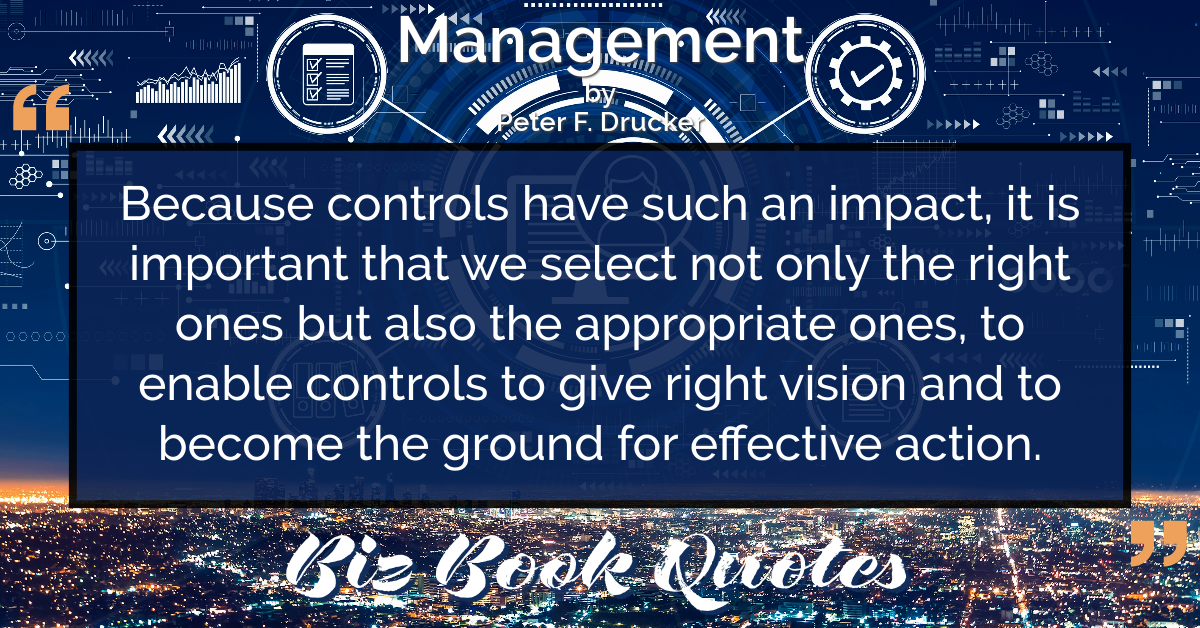
|
Management:
Because controls have such an impact, it is important that we select not only the right ones but also the appropriate ones, to enable controls to give right vision and to become the ground for effective action.
|
325 |
|
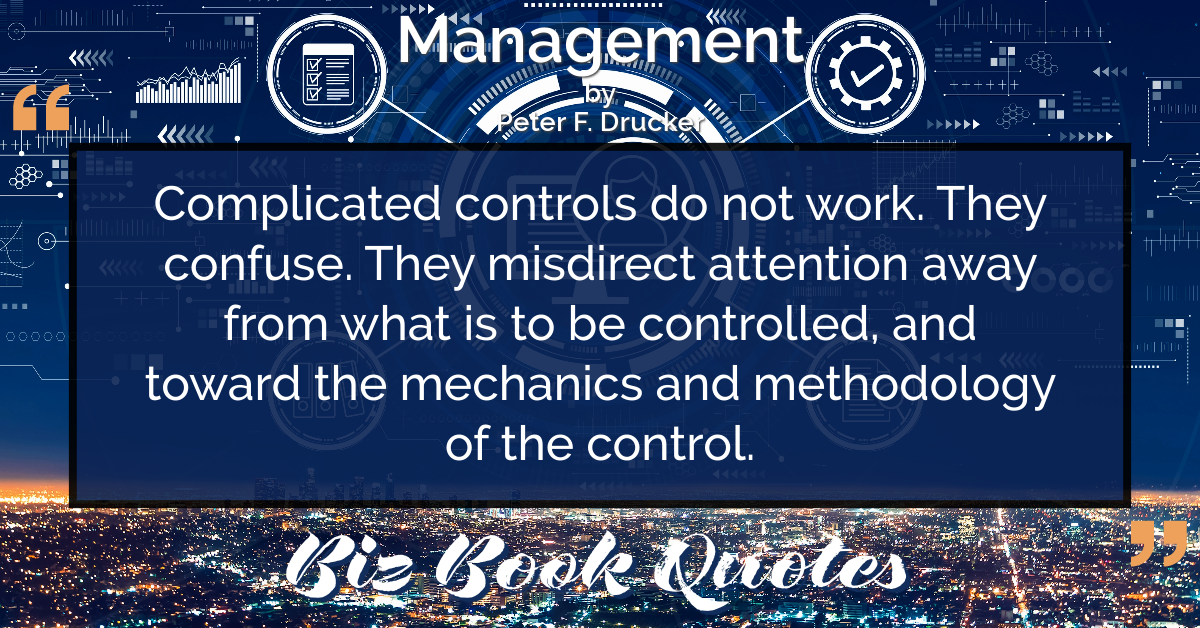
|
Management:
Complicated controls do not work. They confuse. They misdirect attention away from what is to be controlled, and toward the mechanics and methodology of the control.
|
328 |











